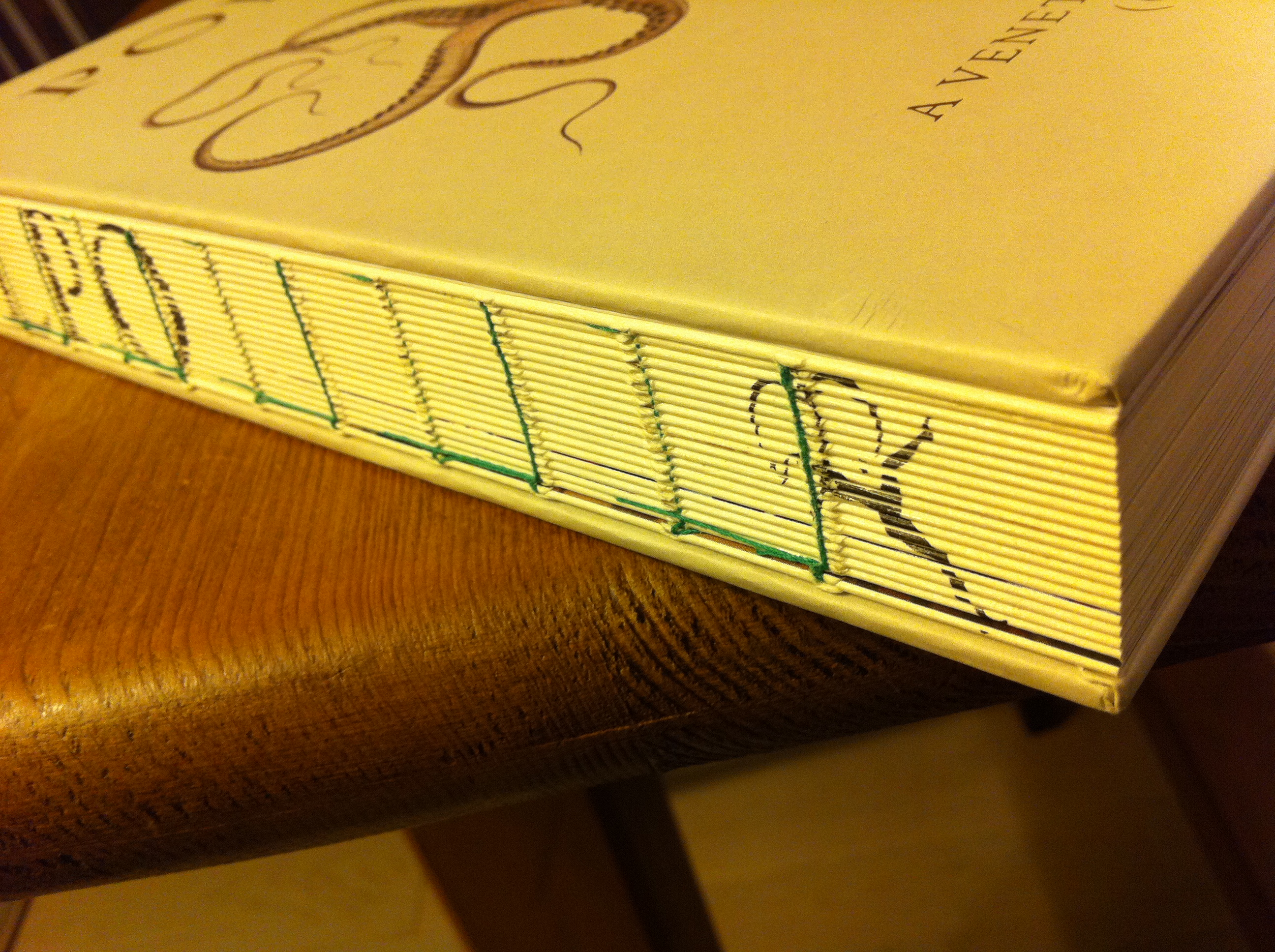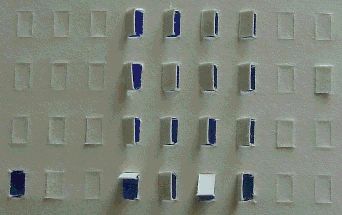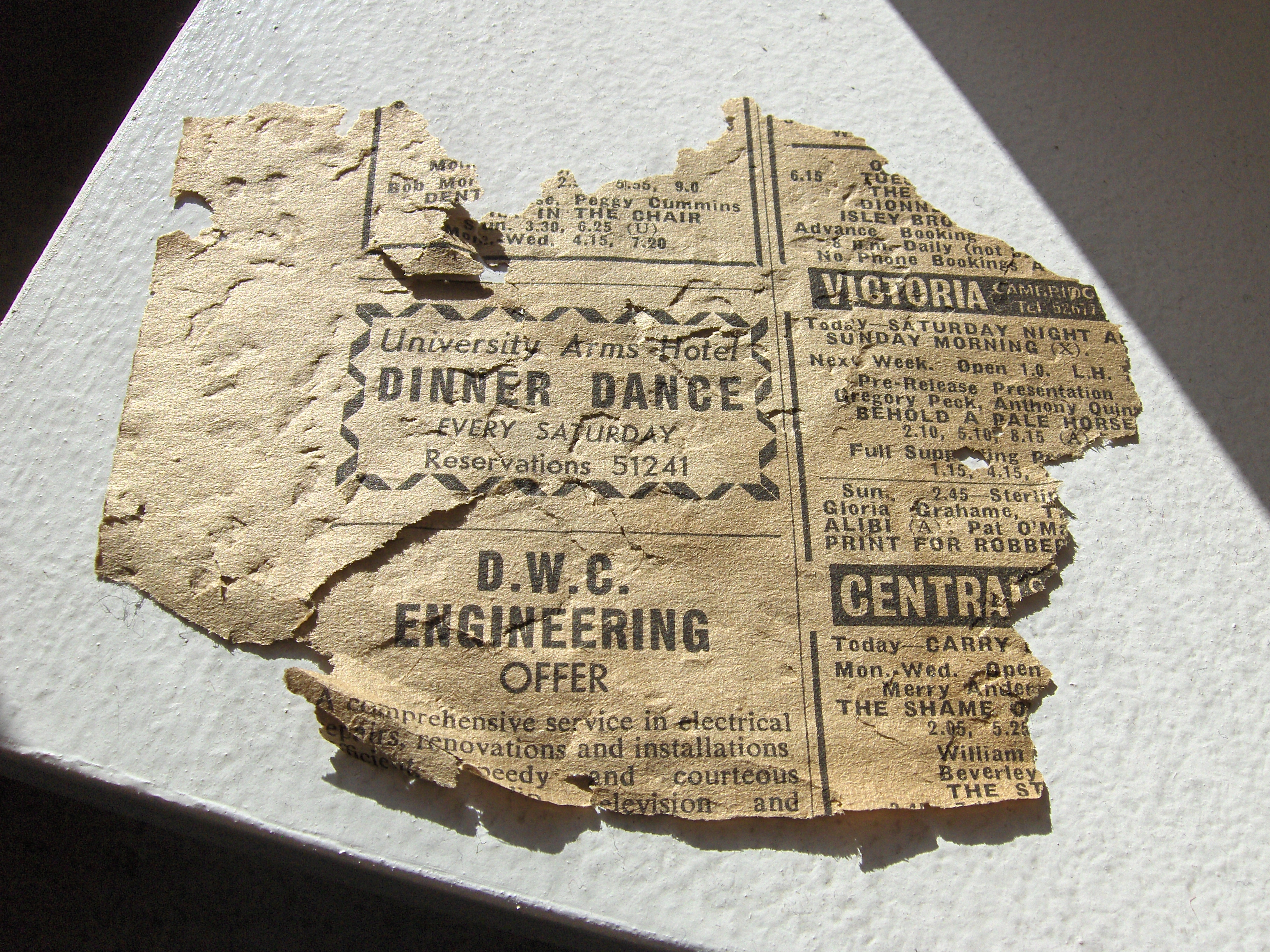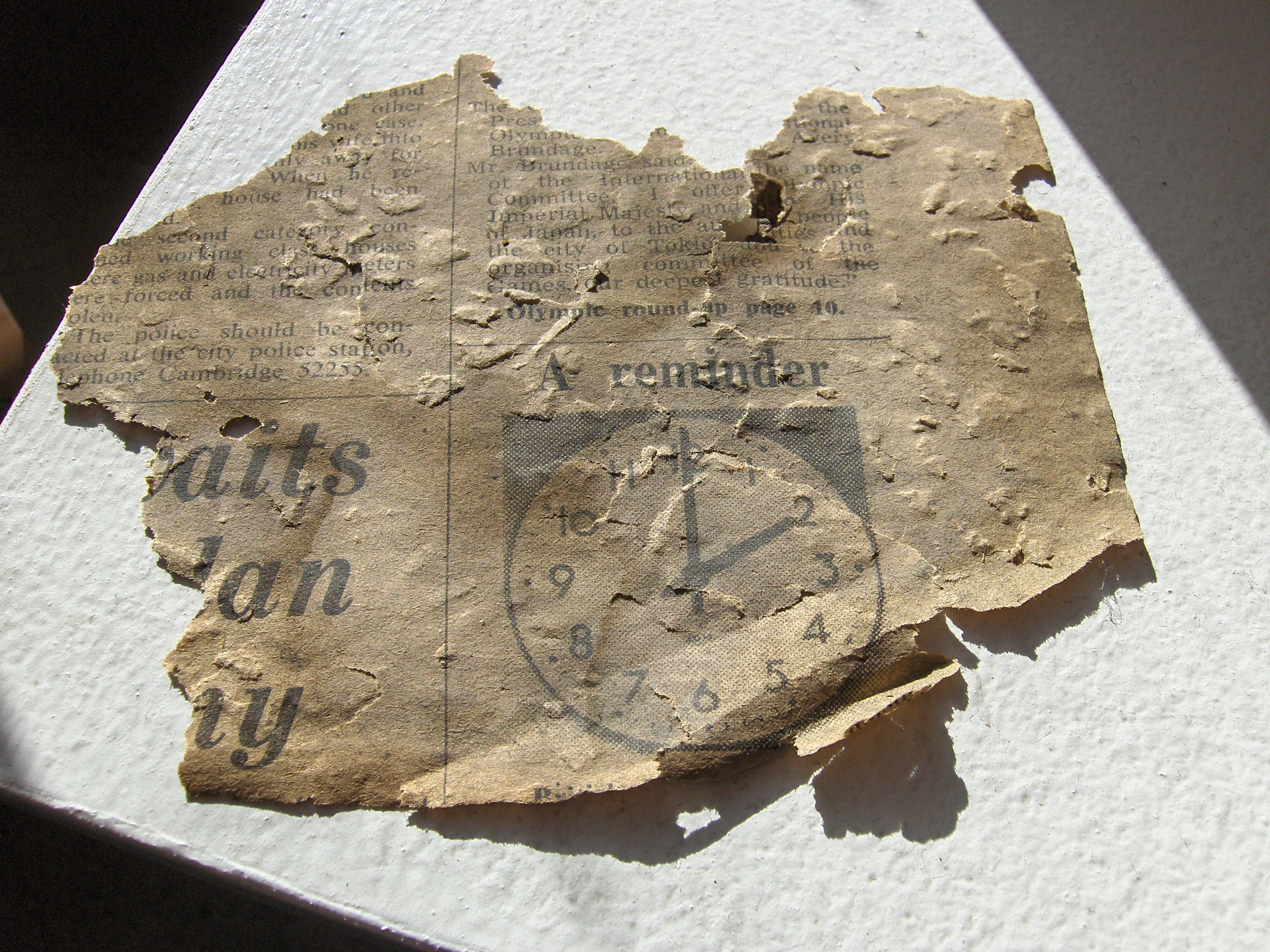 One thing that is bound to happen as e-texts threaten to displace traditional printed books is that publishers will fight back by designing ever more beautiful objects. This is the binding of a cookery book which comes without a spine–just threads running across folds of paper. Or so it appears. In fact, when you run your hand across it, it feels gluey, as though those green strings aren’t really doing much of the work. Still it’s a nice surprise and somehow appropriate to a genre which is all about remembering that you’re flesh and blood, at the end of the day and at quite a few times in the day before that.
One thing that is bound to happen as e-texts threaten to displace traditional printed books is that publishers will fight back by designing ever more beautiful objects. This is the binding of a cookery book which comes without a spine–just threads running across folds of paper. Or so it appears. In fact, when you run your hand across it, it feels gluey, as though those green strings aren’t really doing much of the work. Still it’s a nice surprise and somehow appropriate to a genre which is all about remembering that you’re flesh and blood, at the end of the day and at quite a few times in the day before that.
Which wit at the OED set the ‘Word of the Day’ to ‘chad’? Material texts have lain at the heart of American political ideology and national identity since the Declaration of Independence in 1776, which is on permanent, reverent display alongside the Constitution of the United States and the Bill of Rights in the Rotunda Building of the National Archives in Washington D.C. It is ironic that the outcome of the 2000 presidential election hung not on these grand constitutional documents but on tiny squares of waste paper, and whether they had dropped or were dangling or dimpled.

Given past and present anxieties over the reliability of the electronic voting machines that consigned the chad to the paper recycling bin of history, perhaps it is time the U.S. honoured the Founding Fathers’ commitment to the material text and reintroduced to its democratic process a piece of paper and a stubby little pencil on a piece of string.
This week’s material text was destined for the rubbish bin, along with a great many dead spiders. Since moving house recently, I’ve spent too much time emptying boxes and dusting shelves, and this grimy scrap of newspaper was dislodged from somewhere during the course of my tidying. The name of the newspaper and date of publication do not appear on this fragment, but some casual investigations revealed that it is nearly half a century old, and from a local paper – the University Arms, venue for the ‘Dinner Dance’, is just around the corner from where I live. The cinema listings for a ‘pre-release presentation’ of the film Behold a Pale Horse, starring Gregory Peck, date it to 1964, and on the other side, you can just about make out the end of a report about the Olympics in Tokyo, which took place in October of that year, as well as a reminder about the seasonal changing of the clocks.
Last week I heard a lecture by Hugo Rifkind (columnist for The Times and The Spectator) in which he shared his cynical perspective on the future of newspapers. In the UK, most of the national broadsheets and tabloids are now published in both print and digital formats, and Rifkind showed some statistics which suggested how rapidly the demand for the former is decreasing. The fastest-growing newspaper format is the ‘app’ for tablet computers, which offers subscribers a convenient way to read their newspaper of choice on a portable screen while retaining some of the familiar layout of the printed version. The implications of these changes in the marketplace are manifold for newspapers and their employees. Rifkind spoke about his own growing nostalgia for the dying culture of printed news and all the rituals it incorporated – his paper, The Times, is no longer printed in the building in which he and his colleagues work, and so gone is the possibility of running down to the basement at 3 in the morning to see your column coming literally hot off the press. While news journalism will continue to evolve in many different forms, how long does the newspaper have left?

